
5 things to know about Winnipeg’s big sewage problem
115 billion litres, 70 years to fix, $5.5 billion in lawsuits
Editor’s note: this story was written before the Ontario Liberal party had a climate plan. They released one in early May, which you can see here.
If you ask his boosters, Ontario Liberal Party Leader Steven Del Duca’s defining moment on the environment file is all about Highway 413.
When he was transportation minister in Kathleen Wynne’s government, Del Duca — who is set to be Premier Doug Ford’s main challenger in this spring’s election, though the election is still Ford’s to lose — set in motion a series of events that, for a time, led to the contentious project’s demise.
Developers and land speculators had long pushed for the highway, which would connect suburbs in the northern Greater Toronto Area by cutting through Ontario’s Greenbelt. But opponents were sounding alarms about its environmental impact. In 2015, Del Duca paused the project’s environmental assessment and referred it to an independent panel, which recommended in 2017 that the province axe it entirely.
It was a risky move for Del Duca, whose seat was in the Toronto suburb of Vaughan. The city hosts the headquarters of several powerful land developers, and their donations are a significant force in local politics. And indeed, he lost his seat in 2018 amid a tide of frustration with his party, which saw its seats in the legislature drop to just seven, not even enough to qualify as an official party. The Ford government, which is widely seen as friendly to developers, won that election, and has since revived the highway plan.
“I know how hard it is to be successful if you have developers against you because I’ve had that happen to me,” said Deb Schulte, who has represented Vaughan as both a Liberal MP and a councillor for York Region, of which the city is a part. “He stood up for the environment, despite the personal costs.”
If Del Duca doesn’t win his riding this June, he’ll continue to be a party leader without a seat at Queens Park. But despite his 2018 loss, he points to putting a pause on the highway as evidence he does the right thing under pressure. “There is only one person running for premier … who has a demonstrated track record of actually standing up and doing the right thing,” he said. He makes similar arguments about climate policy — when he was in cabinet, he noted, the Liberal government introduced a cap-and-trade program that was far more effective than the carbon price the Tories have in place now. Nobel-prize winning economists have said cap-and-trade is the most cost-effective and efficient way to cut emissions.
Del Duca’s detractors in the Progressive Conservative government point to a very different anecdote about his character: the time, in 2019, when he and his wife built a pool in their backyard too close to protected green space, without the proper permits.
When he won the 2020 leadership race, Tories handed out inflatable beach balls and invitations to “Steven Del Duca’s pool party,” the Hamilton Spectator reported. Premier Doug Ford once accused Del Duca of “doing the backstroke with those development buddies.”
Del Duca himself framed the pool incident differently: as a moment that shows what kind of leader he would be. When the news came out amid the leadership race, he apologized in a poolside interview with CBC, calling it an “honest mistake” and worked to secure the right permits in the end.
“I faced it, dealt with it, acknowledged it, apologized for it and got it fixed, which is the polar opposite of Doug Ford,” he said in an interview with The Narwhal at the back of a downtown Toronto coffee shop.
With the clock ticking down until an election call, and Del Duca’s Liberals polling consistently in second place, the question is whether voters can be convinced to see him the same way — and whether the polar opposite of Doug Ford is what they want for the next four years.
Del Duca is a first-generation Canadian, the son of a Scottish mother and Italian father. He got into politics in 1988 at age 15, when a family member invited him to a federal Liberal Party nomination meeting. Something clicked that night. And although the Liberals lost the following election, Del Duca loved visiting neighbourhoods, door-knocking and being part of a movement where it felt like big things could happen.
“There was an electricity to it for me,” he said.
Young Del Duca studied history and political science at the University of Toronto and Carleton University. In 1996, he snagged a job as an aide to former Ontario premier Dalton McGuinty, who at the time was opposition leader. A few years later he started working for Greg Sorbara, a former Ontario Liberal cabinet minister whose family runs the real estate company Sorbara Group.
Sorbara had stepped down from the legislature and was in the running to become the president of the party, a bureaucratic role focused on fundraising, leader selection and other internal governance, separate from the public-facing role of trying to win elections. “Someone said, you should get Steven Del Duca to help you with that,” Sorbara said, speaking on the phone from his home in Prince Edward County.
With Del Duca at his side, Sorbara won. When he ran for a seat in the Legislature again in the 2001 election and won, he took Del Duca with him to Queen’s Park.
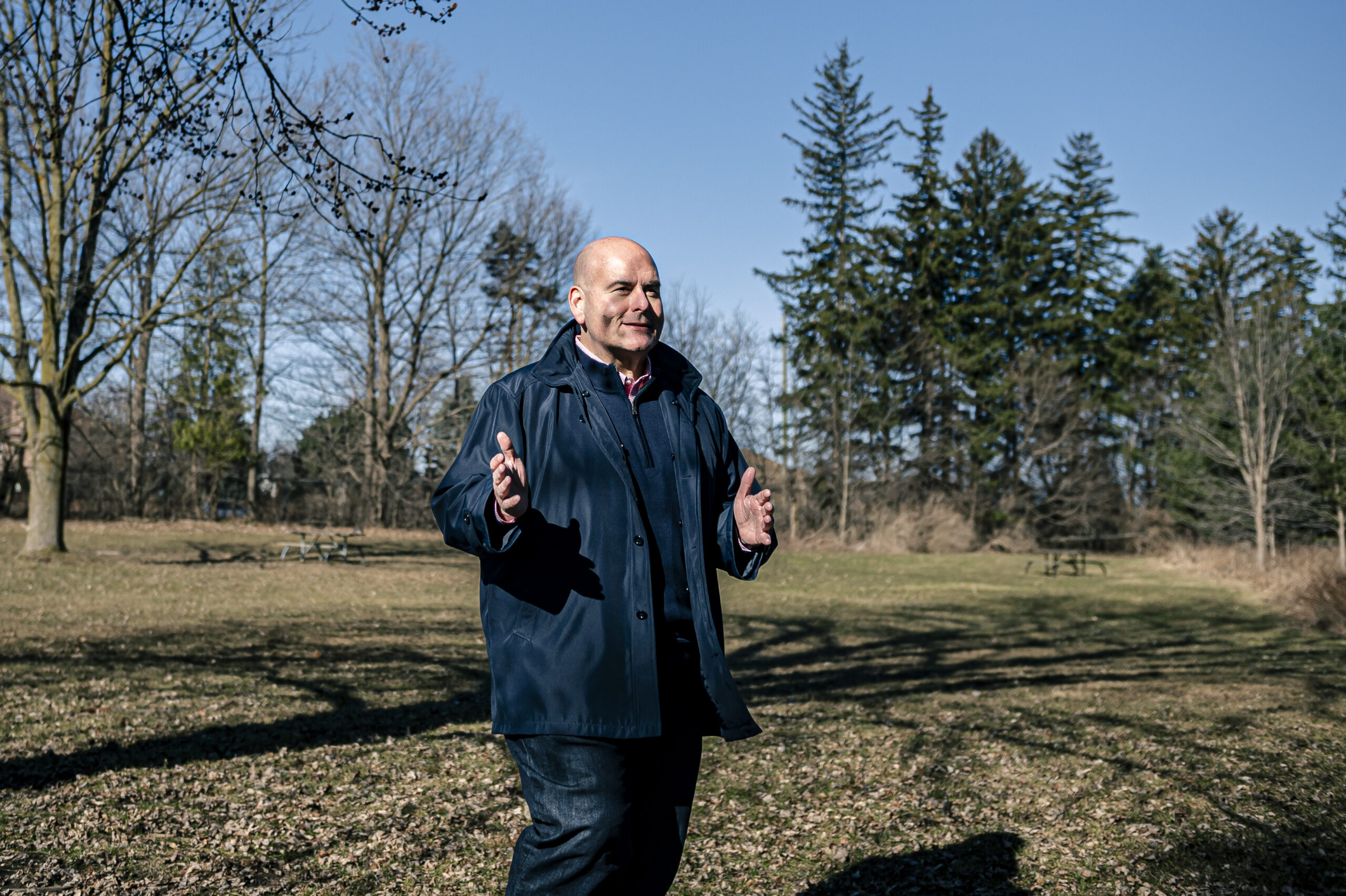
“He really works hard (and has) a good, keen political sense,” Sorbara said. “He understands how the business of politics works and how to manage it effectively. And he is a dyed-in-the-wool Liberal.”
When Del Duca left Sorbara’s office to pursue a law degree, the MPP asked him what he wanted to do afterwards. “He said, ‘Well, someday I might want your job,’ ” Sorbara said. “And I said, ‘You know what, Steven? You’re on, because I don’t want to be here forever. So go get your law degree and prepare yourself.’ ”
And so he did.
Del Duca worked for a federal Liberal MP. He founded a local group called Go Vote Vaughan in 2006 in an effort to boost voter turnout in his hometown’s municipal elections. He worked on a city task force for democratic reform at a time when Vaughan’s local government had a reputation for scandal and dysfunction.
“He took on an initiative that was in the community’s best interest, but wasn’t necessarily loved and endorsed by council,” said Elliott Silverstein, who worked with Del Duca on the task force and is now the director of government relations at the Canadian Automobile Association.
“It’s important because not everybody will go and take those types of calculated risks.”
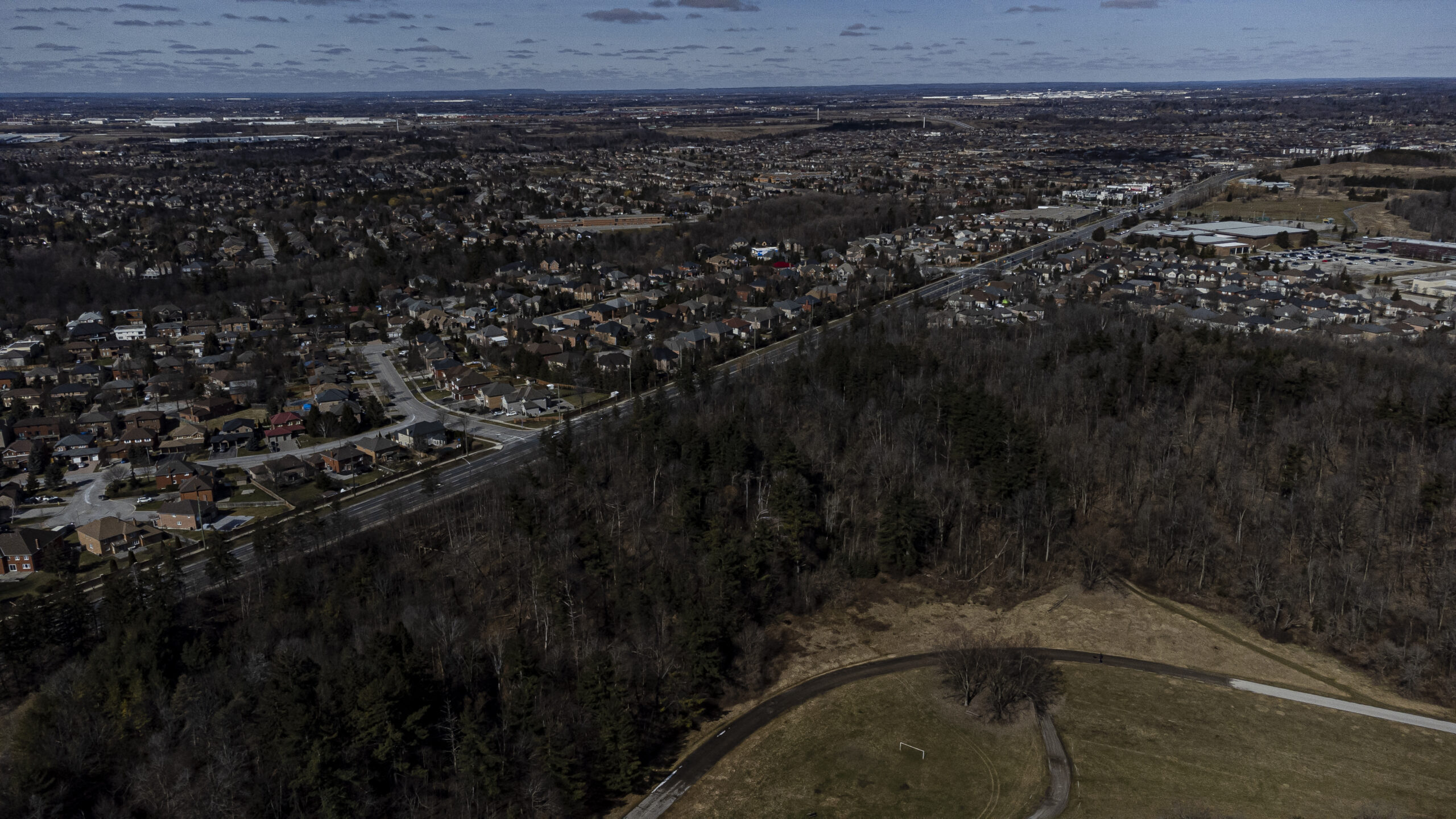
In 2010, Del Duca launched a bid to become a city councillor. He declined corporate and union donations, calling for them to be banned. He generated some hype, but lost by about 200 votes.
At the same time, from 2007 to 2012, he was the director of public affairs for a union that was a major political donor, the Carpenters’ District Council of Ontario. Reflecting on that time now, he said he didn’t feel conflict between his role with the union and his principles on the campaign trail. “I decided early on that, if I was going to run for this position, I had to take a stand on doing things differently,” he said.
Del Duca won his seat in the legislature in 2012 after Sorbara retired from politics. He began taking donations from developers. In 2014, when he became transportation minister, a construction industry publication declared him one of their own, noting his ties to the union.
But this past March, Del Duca laughed at any suggestion that his connection with the development industry means he’s beholden to it. He has pledged to kill Highway 413 again if his party wins this spring, and promised to end the use of a controversial power called a minister’s zoning order or MZO, which the Ford government has used to override environmental rules and fast-track developments.
Sure, the development industry is a major employer in his riding, he said. But he also noted that in recent years, the Progressive Conservatives have received far more developer funding than his party.
“While I’m quite certain without knowing the gory details that there are some people in the development industry who have made donations to the Ontario Liberal Party, it pales in comparison to what you see happening from the other side,” he said.
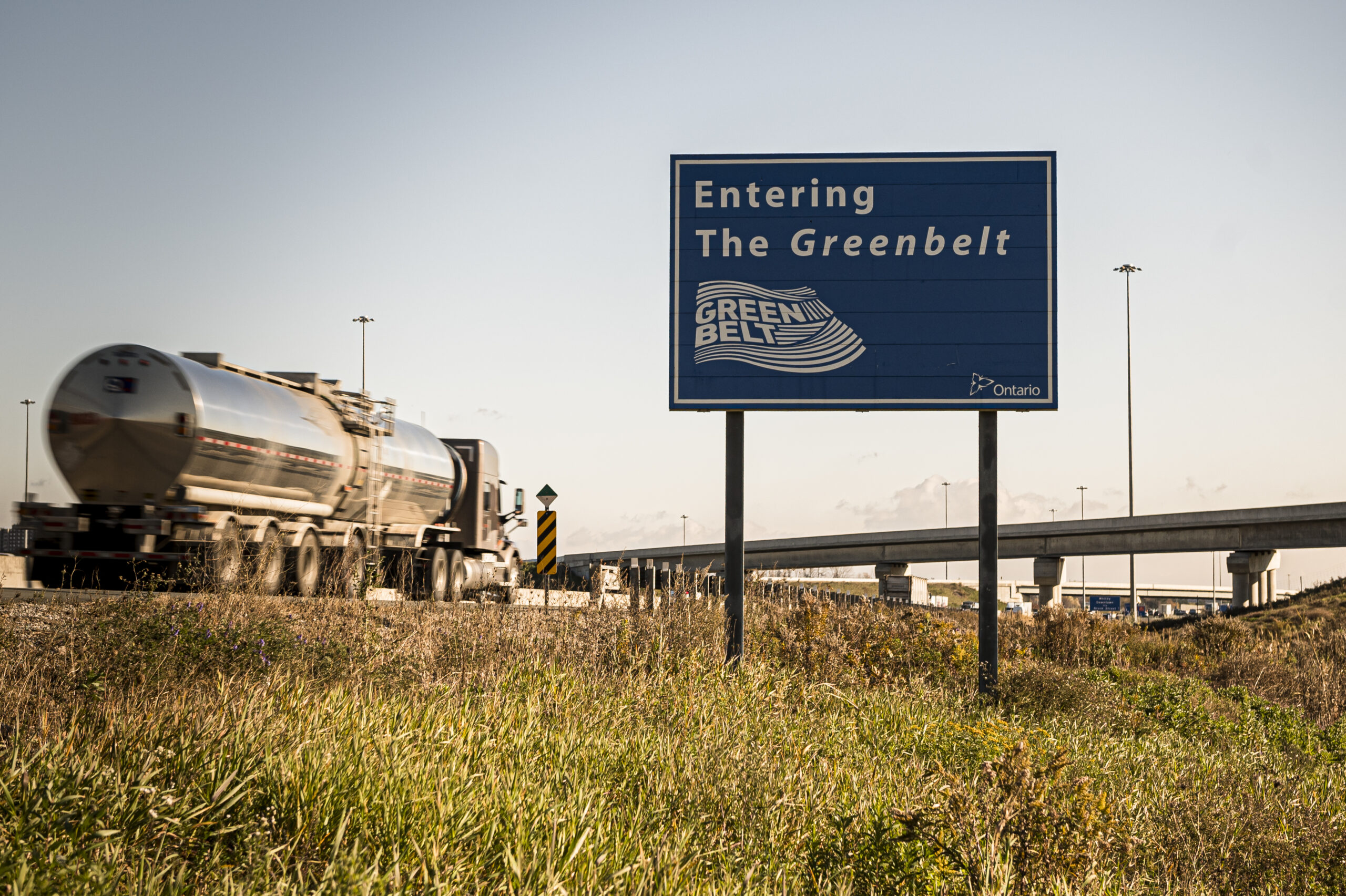
Del Duca — who loves the TV show Seinfeld, the Toronto Raptors, dark roast coffee from Second Cup, his two dogs and walking on trails near his Vaughan neighbourhood — cuts the image of a classic suburban politician. Which is to say, he’s moderate.
“He is the kind of hardworking, middle of the road politician that is in the great tradition of Ontario politics,” Sorbara said.
And so, when it comes to the climate, Del Duca is no radical. You won’t find him scaling the CN Tower for a protest, for example.
His climate plan isn’t out yet, so it’s not exactly clear how he’ll approach the file. But he said that he wants to avoid the “whiplash” cycle of governments of different parties continuously undoing and remaking climate policy like carbon pricing — although he also said that he wants to make up for what he calls the Ford government’s “four lost years” on the environment.
“I believe there’s enough of a framework in place, if it’s adjusted and strengthened and targeted, for us to not need a new carbon pricing regime in order to actually hit our targets,” he said.
“But we are going to be very aggressive and we want to build in a lot of accountability to make sure that we deliver. I’m really, really tired of people setting targets and then missing them.”
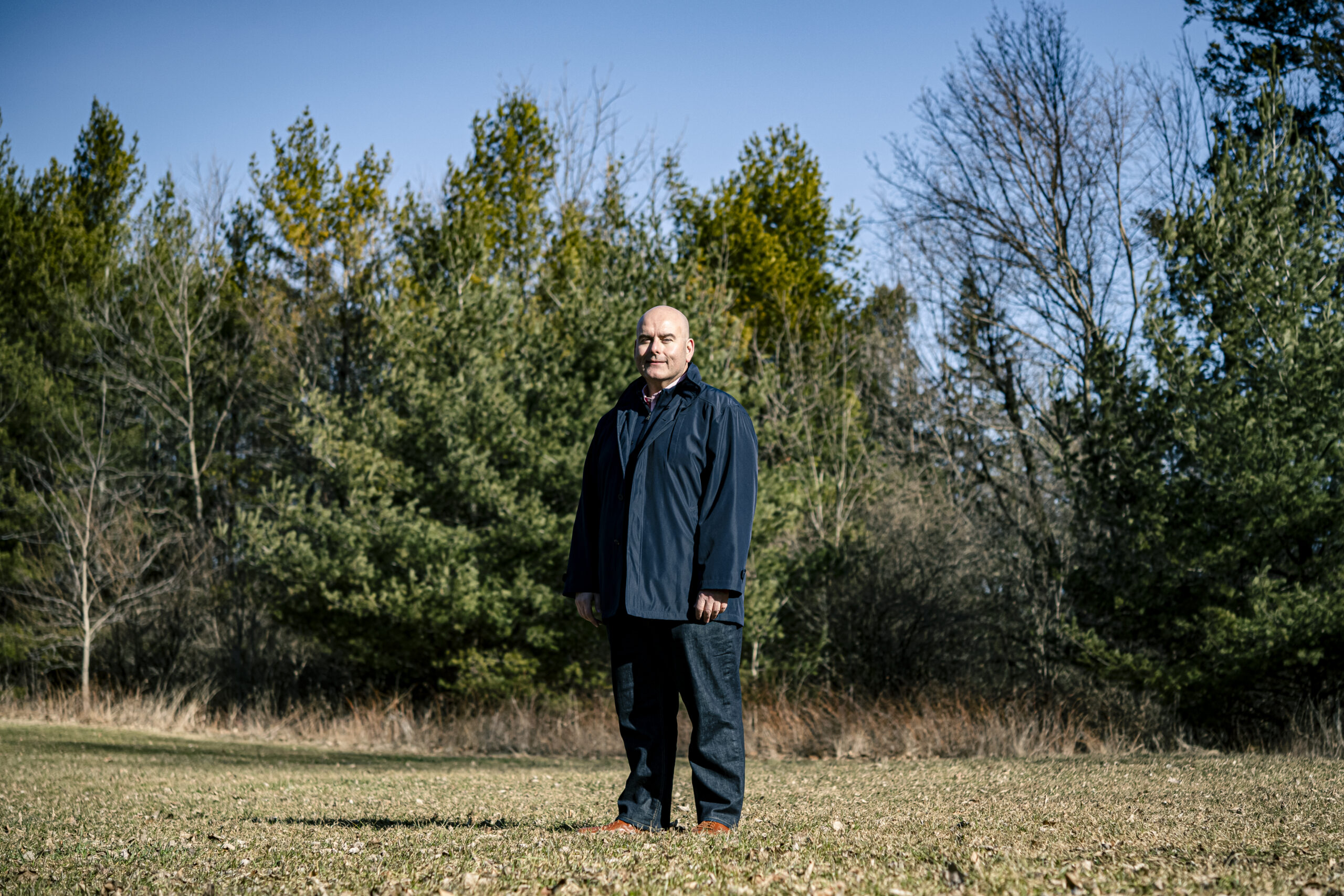
At the same time, Del Duca has more environmental savvy than many know. He was in the back rooms with Sorbara when the McGuinty cabinet hammered out the details of Ontario’s Greenbelt. He drives an electric car. When asked by The Narwhal what his favourite endangered species is, Del Duca named the redside dace — a niche endangered minnow that has come up in many Greater Toronto Area development battles. His wife, Utilia Amaral, worked for former Ontario Liberal environment minister John Gerretson and in solar energy before starting her own consulting business. Schulte called them a “powerhouse team.” Del Duca doesn’t talk about this much.
“He’s not one that runs around tooting his own horn,” Schulte said. “I think that’s a bit of a problem because he’s a quieter guy, he’s a get-it-done kind of guy.”
Still, it’s not clear whether Del Duca’s moderate approach is enough given the urgency of the climate crisis. Critics like the Ontario Clean Air Alliance, for example, point to Del Duca’s reluctance to take a position on whether Ontario should phase out carbon-emitting gas plants — the Ontario NDP and Greens have both backed calls to do so by 2030, while the agency that operates the province’s power system has warned that moving too fast could lead to rolling blackouts and skyrocketing electricity bills.
Del Duca said the other opposition parties’ positions are “unrealistic,” and he’s working on a more practical platform. “I think it’s unfair to spin a yarn to the people of Ontario that says we’re going to magically wave a secret wand that no one else has ever discovered before,” he said.
Ontario Green Party Leader Mike Schreiner said he worries the Del Duca Liberals might not be able to make the transformative changes environmentalists feel are needed. For instance, he said, the party has come out against the 413 but hasn’t gone so far with its sister highway, the Bradford Bypass. The bypass would also run through the Greenbelt, but has far stronger support among locals than the 413. Del Duca has said the project should receive a full review but hasn’t called for it to be axed, as the NDP and Greens have.
“Are you all in on imagining a more affordable, livable new climate economy?” Schreiner said. “Or are you kind of halfway there?”
Del Duca argued that on the bypass and other complex issues, he’s trying to make space for nuance.
“I think that’s the most responsible place to be,” he said. “I have a suspicion when those studies are properly updated, that there will be a lot of information in there that will make it fairly clear what direction that project should go in. But I am someone who does believe in getting the data.”
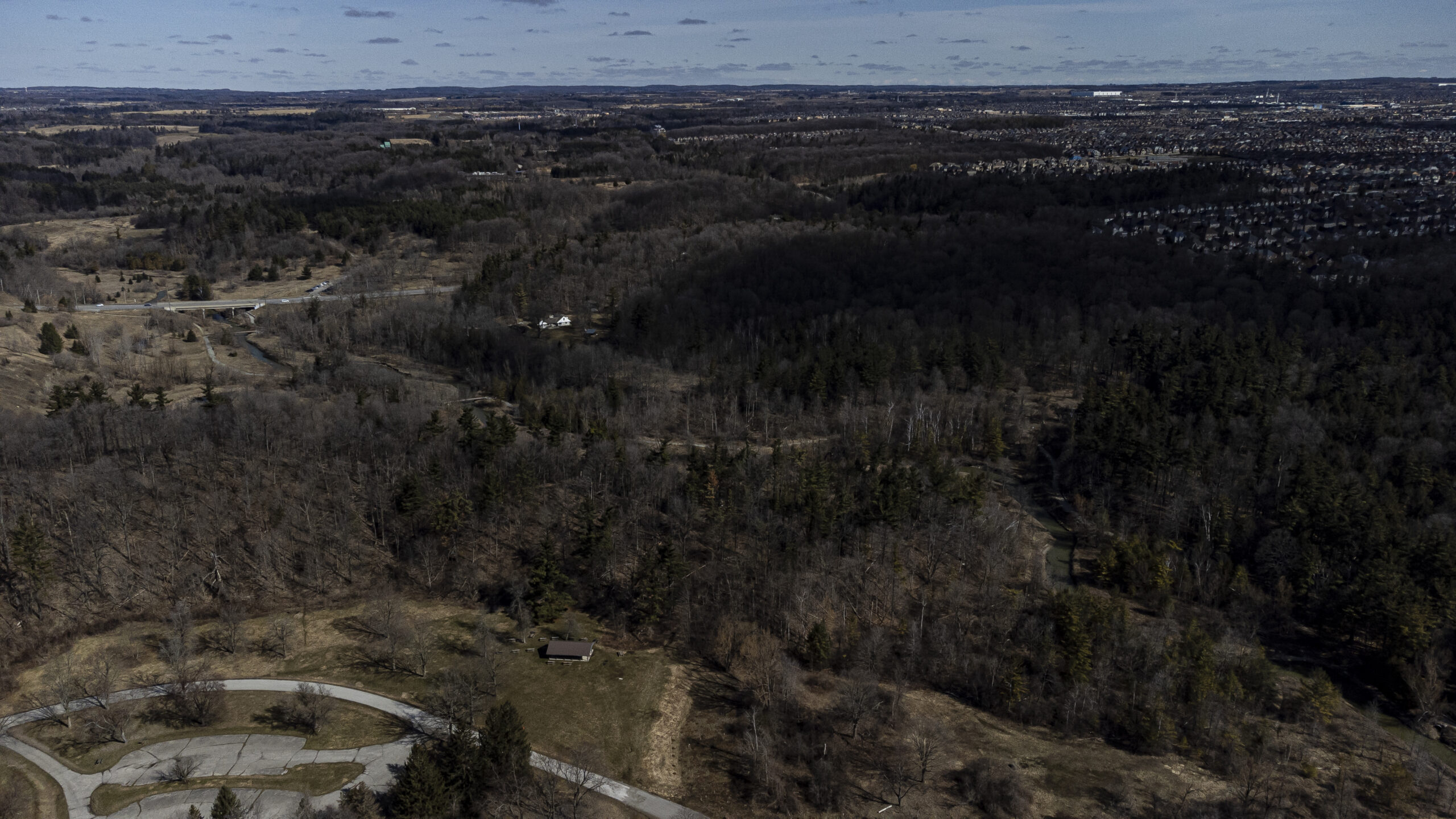
Del Duca’s fans argue that his desire to take a measured approach is what makes him the right leader for this moment.
“He’s not warm, he’s not fuzzy, he’s not your typical politician,” Schulte said. “But he’s very quick-witted and he’s very funny when he relaxes. He’s got the elements that I think are very critical for a good leader … he stands on principles.”
Critics have used the pool incident — and another where the province’s auditor general found Del Duca pressured Metrolinx in 2016 to approve the Kirby GO train station in his riding — to argue a counterpoint: that the former transportation minister thinks the rules don’t apply to him. Metrolinx is officially an arms-length provincial government agency, and its own analysis found the station would have a negative impact on its rail network. But after Del Duca intervened, Metrolinx revised a report to support the idea and signed off on the project.
Del Duca has since maintained that he felt Metrolinx wasn’t accounting for planned population growth, and that he was simply pushing hard to build much-needed public transit. “I made the right call, and I would do it again,” he wrote in 2018.
Those moments may have rubbed some voters the wrong way, but insiders also say Del Duca excels at the type of relationship building that might make contentious climate discussions easier to hammer out. He never forgets a birthday. He remembers the tiniest snippets of conversation years later.
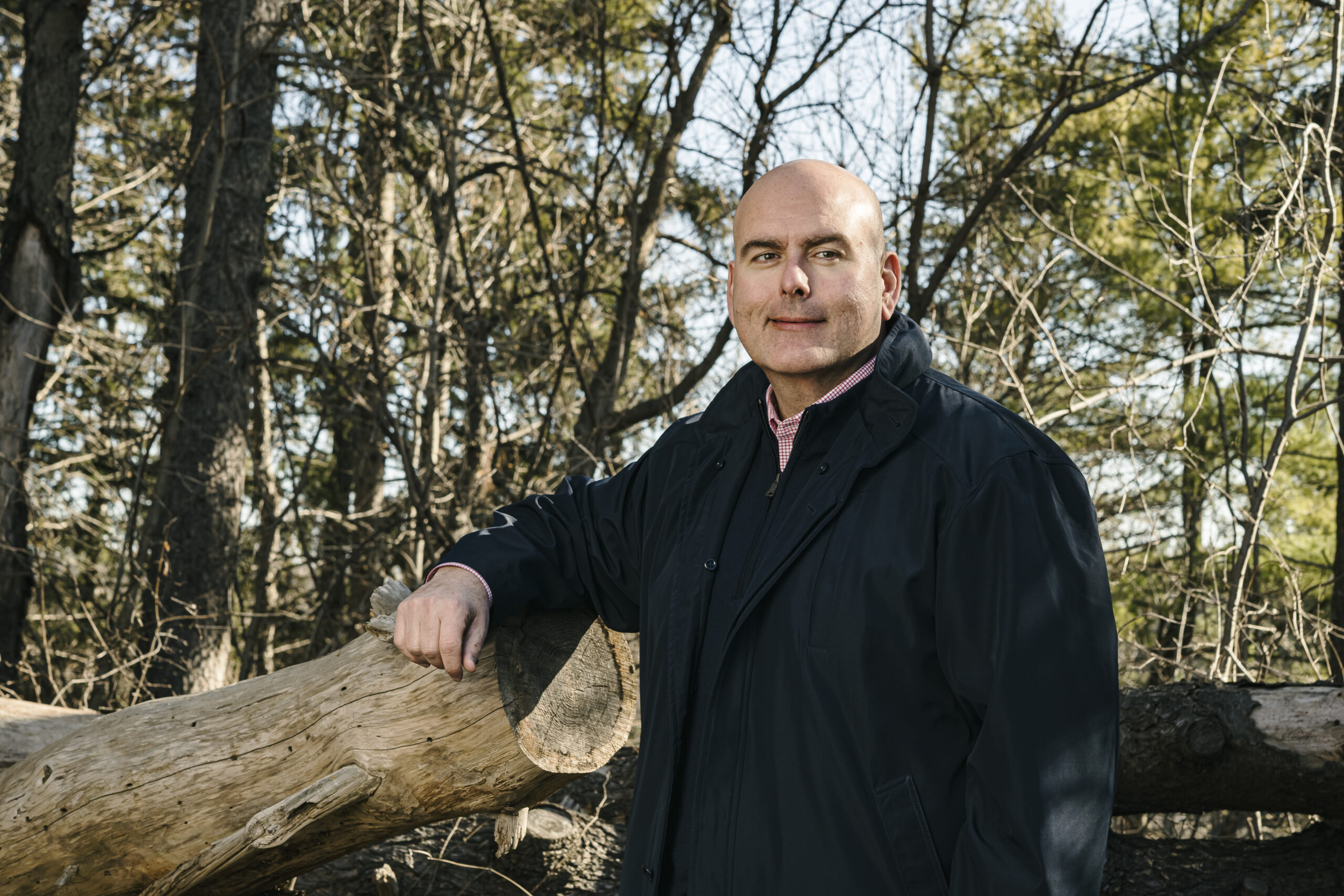
Federal Liberal MP Michael Coteau, a former Ontario MPP who ran against Del Duca in 2020 for the party’s leadership, said Del Duca’s organizing prowess stood out in that campaign. “That’s why he won,” Coteau said. “He was a better organizer.”
When Coteau decided last year to give up his provincial seat and enter the federal arena, Del Duca brought up a conversation they’d had in the mid-2000s, during which Coteau had confided that he dreamed of going to the House of Commons. Coteau didn’t even remember telling him.
“He reminded me of a bit more about myself, 15 years before, and what my dream was,” Coteau said. “Steven has always been a gentleman, even when we were competing against each other.”
Of course, it may not come down to that. Or climate, or a pool, or a highway or any other single issue or moment. Sorbara said he believes his protégé is capable of using his consensus-seeking skills to beat Doug Ford, whose party is still polling in first place. It really depends on whether Ontarians are in the mood for a change of power. On the environmental file, that means attracting voters who are worried about issues like cutting emissions and balancing growth with the need to protect green space.
“I have a very simple and straightforward approach to politics, and that is that governments are not elected, they are defeated,” Sorbara said.
“In other words, Steven will be the premier if there is a growing consensus in Ontario in June that it’s time to get beyond Doug Ford. And I don’t know if that consensus is there yet.”
Get the inside scoop on The Narwhal’s environment and climate reporting by signing up for our free newsletter. On a warm September evening nearly 15...
Continue reading
115 billion litres, 70 years to fix, $5.5 billion in lawsuits

Climate change, geopolitics and business opportunities power a blue economy

10 billion litres of sewage are dumped into Winnipeg’s lakes and rivers each year. Some...
